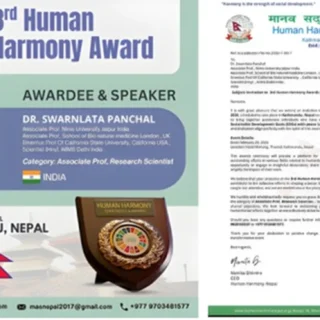
Chennai: Health care at your fingertips

Ms V. Sasikala and Ms H. Hemalatha load their biodegradable jute bags with diagnostic tools and medications and put on bright pink jackets every morning to visit 25 households and provide basic health care services directly at people’s doorsteps. They are trained women health volunteers who, as part of Tamil Nadu’s Makkalai Thedi Maruthuvam (MTM) project, visit houses to screen adults over the age of 30 for noncommunicable diseases (NCDs) such as diabetes, hypertension, and mental health problems, tuberculosis (TB), and nutrition. They also administer chronic condition medications to at least 20 clients every day and monitor their adherence to prescribed medication to ensure effective illness management and treatment
Ms V. Sasikala, an MTM volunteer, takes Ms Vanitha’s blood pressure at her residence at Makkaram Thottam, Kolathur, Chennai. (Photo courtesy of Sanchita Sharma / WHO India).

Ms Vanitha is one of the many thousands of Chennai residents who have benefited from the MTM initiative. She has high blood pressure and diabetes, yet she receives regular medical attention and therapy without leaving her house in Makkaram Thottam, Kolathur, Chennai. Ms V. Sasikala and Ms H. Hemalatha visit her at home to test and record her blood pressure and blood glucose levels, to administer her monthly dosage of prescription medications, and to ask her a series of health-related questions, such as aches and pains, illness symptoms, nutrition, sleep, and mental health. They also check her son, Mr Murali Mohan, 39, who has no confirmed condition but is eligible for NCD screening due to his age. Services for the management of NCDs, tuberculosis, malnutrition, and mental health have been integrated to give patients with a full continuum of care. Diabetes increases the risk of tuberculosis and has a worse treatment result. At the Urban Primary Health Centre (UPHC), women health volunteers screen patients for hypertension, diabetes, and mental health disorders, as well as collect
volunteers screen patients for hypertension, diabetes, and mental health disorders, as well as collect sputum samples from symptomatic persons for testing for tuberculosis (TB). Sputum testing for tuberculosis is available in all UPHC diagnostics labs, and results are available within a day.
Ms Kanchana and Ms Kannagi, two women health volunteers, work closely with NCDs staff nurse Ms P. Manjupriya at Thiru. Vi. Ka Nagar Urban Primary Health Centre in Chennai. (Photo courtesy of Sanchita Sharma / WHO India)
Diabetes is connected with a twofold to threefold risk of TB illness, a twofold risk of mortality during TB treatment, a fourfold risk of TB return after treatment completion, and a twofold risk of multidrug-resistant TB, according to global statistics. According to the Global Tuberculosis Report 2021, diabetes was responsible for an expected 370 000 additional cases of tuberculosis worldwide in 2020. The WHO Collaborative Framework for the Care and Control of Tuberculosis and Diabetes advises building mechanisms for collaboration, identification, and management of TB in diabetic patients.
MTM volunteers who have been trained by the Tamil Nadu Corporation for Women are in the forefront of this engagement. The Tamil Nadu State Tuberculosis Cell has trained and incentivized these women health volunteers for active TB case detection in order to strengthen community-based health services with integrated care for TB patients with comorbidities, with each volunteer receiving Rs 500 for each positive TB case they assist in detecting. MTM volunteers also counsel and help patients who are lost-to-follow-up during therapy to finish the full course of TB treatment.
Mr R Gopinath is counselled on lifestyle changes by women health volunteers after being newly diagnosed with high blood pressure during a regular examination. (Photo courtesy of Sanchita Sharma / WHO India)
All 140 UPHCs in the Greater Chennai Corporation area provide diagnostic and treatment services to people screened by MTM volunteers. Two suspected TB cases identified by woman health volunteer Ms Kanchana tested positive and are now on six-months treatment under the supervision of the medical staff at Thiru. Vi. Ka Nagar Urban Primary Health Centre “All TB cases are reported, and each patient is followed up on a monthly basis.” Women health volunteers collect sputum from symptomatic persons for testing. A list of ‘irregular patients’ is also given for follow-up with sanitation inspectors, who visit 80 homes each day to hunt for mosquito breeding areas. Since including additional sectors, the loss to follow-up has been dramatically decreased. “We don’t work in silos,” said Dr. Lavanya J., District TB Officer for the Greater Chennai Corporation, which is in charge of the Chennai TB Free Project
Dr. Lavanya J. (extreme left), Greater Chennai Corporation’s district TB officer, collecting input on the quality of treatment from a TB patient (right) being treated at Thiru. Vi. Ka Nagar UPHC in Chennai. (Photo courtesy of Sanchita Sharma / WHO India)
In addition, UPHCs offer specialised treatment to the populations they serve. “Every day from 4 to 8 p.m., specialists in general medicine (internist), psychiatry, palliative care, ENT, nephrology, ophthalmology, dermatology, paediatrics, and obstetrics and gynaecology run polyclinics on various specialties.” “The community response has been very positive,” said Dr Jaya Priyanka, medical officer at Kolathur UPHC in Chennai.
The goal of India’s National Strategic Plan for Tuberculosis Elimination is to eliminate tuberculosis by 2025, five years ahead of the global target, through a multi-pronged approach that includes decentralised screening and treatment services closer to the community through integration with Ayushman Bharat – Health and Wellness Centres. WHO India offers technical and field assistance to the Ministry of Health and Family Welfare in order to accelerate TB-eradication efforts.




